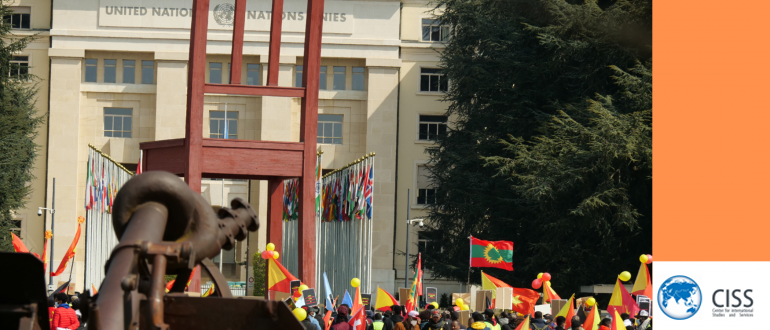
Against solidarity with an expiration date
Disclaimer: The views and opinions expressed in this article are those of the author and do not necessarily reflect the opinion of CISS or its members.
It is currently difficult to get hold of reliable information regarding the situation in Ethiopia’s Tigray region. For the past 20 months fighting between the Ethiopian federal government and Tigray’s regional forces has caught civilians in crossfire and sparked further military confrontation in neighboring Amhara and Oromia. Overall, the humanitarian crisis has left about 5 million people cut off from communications and with minimal access to food for almost 2 years. It raises major concern if even Tedros Adhanom Ghebreyesus, a senior political figure from Tigray and director of the World Health Organization has been unable to send money to his family in the past months. Meanwhile in Europe, politicians and citizens were quickly concerned about Russia’s aggression towards Ukraine but are now rather occupied with their own cost of living crisis closely linked to the Ukraine war, the pandemic and climate change.
Echoing observations in blogs, commentaries and social media posts, solidarity must depart from hurriedly waving flags as soon news of crisis reach us and people suffer. This reflex is a demonstration of disposable solidarity that has also seeped into public discussion of the Ukraine crisis. Similarly, Tigray’s situation had briefly captured news headlines in late 2020 but was not able to keep momentum for long. Departing from a tentatively hopeful humanitarian truce from March 2022, Ethiopian federal forces recently started to bombard Tigray’s regional capital of Mekelle as of September 2022. Millions of people in Ethiopia continue to be cut off from communication access and are in dire need of food aid. Contrary to Ukraine’s situation where public attention and political de-escalation efforts were initially quickly mobilized, the Tigrayan crisis has remained in relative darkness with little hope for de-escalation at the negotiation table. Yet, even declining media coverage and public fatigue regarding Ukraine are a poignant illustrations of how quickly attention fades if it only remains nurtured by initial horror instead of deeper-rooted international solidarity.
Surely, rising cost of living and repercussions for Western economies are relevant for millions of Europeans at the moment, yet it is crucial to maintain perspective in light of crises and conflicts outside of Europe’s immediate gaze. Unfortunately, the story of an imperalist leader invading territory and inflicting harm on civilians to restore a mythical community sounds quite suitable for both the Ukraine war and the Tigray crisis. Non-Western imperialism is on the rise globally and it has become more important than ever to call out this concerning development.
Consequently, historical junctures as with the Ukraine war can be seized as opportunities to draw parallels and forge synergies against neo-imperialism and for internationalism in solidarity. Internationalism in solidarity must surely account for the tremendous danger of nuclear and economic escalation with grave consequences for the entire globe if Russia chooses this route in its aggression against Ukraine. Nonetheless, internationalism in solidarity must also be able to see commonalities in human hardship and abolish the idea of a marginal periphery in international politics. So this very moment can be leveraged as historical juncture inviting us to ask where our solidarity ends. I would like to believe that it is unfaltering and universal.

